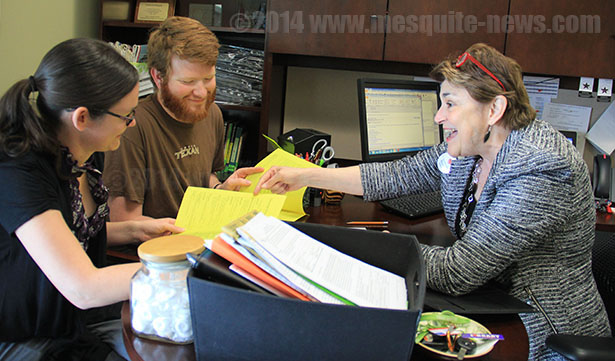
By Jesse Cazares
As graduation nears, students prepare to search for careers with a degree in one hand and a list of potential job opportunities in the other.
Resumes are essential when applying for positions, but it can be difficult to anticipate what elements to include that will attract job recruiters.
“Seven seconds is all it takes to impress and make them want to learn more,” Joel Jenks, Executive Recruiter for the City of San Antonio, says.
Throughout his career, Jenks has read more than 7,000 resumes and conducted more than 400 interviews.
Here’s his list of what not to do and how to improve a resume:
- Avoid including a career objective statement.
According to Jenks, such statements produce an “alphabet soup of words and cliches.” Instead of writing an objective, compose a professional statement that includes education and skills. See this as a “30 second intro,” says Jenks.
- Avoid adding a photo.
Pictures are a waste of space. Employers expect resumes skills to paint an image. Instead, focus on the structure and content of the resume. Jenks says candidates don’t want recruiters to wonder, “Are they going to accuse me of discrimination?”
- Avoid putting a physical address.
The purpose of including an address was for mailing paperwork. In the 21st century, everything is done online. “No one mails you anymore,” Jenks says. “It all goes through email.” However, it’s best to still include the city and state so the employer knows the applicant is local. Jenks also suggests including a hyperlink to a professional website or LinkedIn account.
- Avoid using a social or friendly email.
Do not use the “fun” email address used for creating a “hip” Facebook account. Selfie2014@… probably won’t get the job. Instead, create a professional email used only for job opportunities. Simply incorporate first and last name, and numbers if needed. (Jane.Doe1989@…)
- Avoid inspirational quotes.
Stephen King and Oprah already have their careers. Do not use their words in an attempt to awe the employer. Candidates should define their own skills and profit from them.
- Leave out hobbies.
Fishing with the family makes a great hobby, but not one that will display work skills.
Mention a hobby only when it can be an accomplishment to the job, says Jenks.
Lastly, the two biggest mistakes anyone can make on a resume:
1. Organization
“Entice the reader to continue reading,” Jenks says. The most impactful facts should be listed first in every section of a resume. For example, list a position or title first and the organizations name second (Cashier, Restaurant), or the degree title, followed by the university (B.A. in English, Texas A&M University-San Antonio).
2. Don’t just list the job, list the accomplishments.
Jenks recommends this formula for describing accomplishments: “I did _X_ resulting in _Y_,” or “I’m a salesman, I increased sales by 25%.”
While these tips help job seekers get a step closer to completing their resume, it needs to be constantly updated.
Jenks suggests updating it each time there’s a significant accomplish in a job. He encourages workers to make resumes “living, breathing documents.”






